Features
IMMIGRATION ENFORCEMENT: ANTI-LABOR TOOL

by Steve Wishnia, Dissent News Wire
Last April, Ramón Méndez, a Mexican-born roofer in Los Angeles, complained to the Department of Labor that the contractor he worked for had stiffed him out of $12,000 he'd earned.
"Within a few days, immigration officers showed up at his house and put in a deportation order," says Cliff Smith, business manager of Roofers and Waterproofers Local 36 in Los Angeles. But Méndez was on the street nearby and saw them coming. He escaped, and with union, community, and political support, was able to make a deal. He turned himself in to the Bureau of Immigration and Customs Enforcement, and as he had no criminal background and the agency has a policy of staying neutral in labor disputes, he was given an "order of supervision" and later a work permit. However, says Smith, "vindictive ICE officials are requiring him to wear an ankle bracelet, making it difficult to hold steady employment to provide for his wife and four children."
THE WORLD'S STRANGEST LANDGRAB?
Wandering Amu Darya River Opens Afghanistan Border Conflict
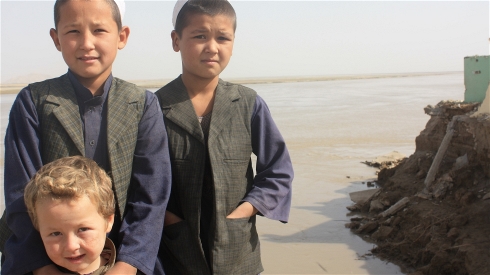
by Joe Dyke, IRIN
MAZAR-I-SHARIF — Uzbekistan has a perhaps unusual ally in its territorial claims over neighboring Afghanistan: the mighty and ever-wandering Amu Darya river. And no one knows it better than the children of Arigh Ayagh School, just inside Afghanistan.
Built in 2007 about 3 kilometers from the Amu Darya—which runs along the border between the two Central Asian giants—the school was financed through the National Solidarity Programme, a development scheme largely funded by the World Bank.
Yet all that remains of that investment is a solitary wall, dangling tentatively over a precipice. Sitting in its shadow, two teens stare blankly across the vast river that is rapidly swallowing their homeland.
Every year for the past decade the Amu Darya has encroached up to 500 metres further into Afghanistan, taking with it large swathes of territory and leaving hundreds of families homeless. And as the official border between the countries is defined as the middle of the river, Uzbekistan has laid claim to hundreds of kilometres of Afghan territory.
MAURITANIA: CRACKDOWN ON LAND STRUGGLE
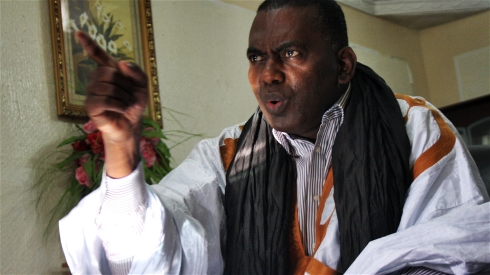
from IRIN
NOUAKCHOTT — The latest arrest of a group of prominent anti-slavery activists in Mauritania has once again brought to the fore the country's struggle with slavery and discrimination based on color. The Global Slavery Index classifies Mauritania as the most egregious offender when it comes to modern slavery, with 155,600 people still living in enslavement or about 4% of the population. The index defines slavery as the status of a person who is owned by another, which could also include practices similar to debt-bondage, forced marriage, and slavery based on descent.
Several veteran activists were arrested on Nov. 11 near the Mauritanian city of Rosso, on the Senegalese border. They were crisscrossing the Senegal River Valley holding public meetings and rallies to raise awareness about the need for land reform to benefit former slaves. People descended from slaves are often the victims of discrimination and have difficulty gaining access to land.
Senegal River Valley is the site of some of Mauritania's best (and only) agricultural land, since the Sahara desert covers more than three-quarters of the country.
COLOMBIA: TALKS WITH THE OTHER GUERILLAS?
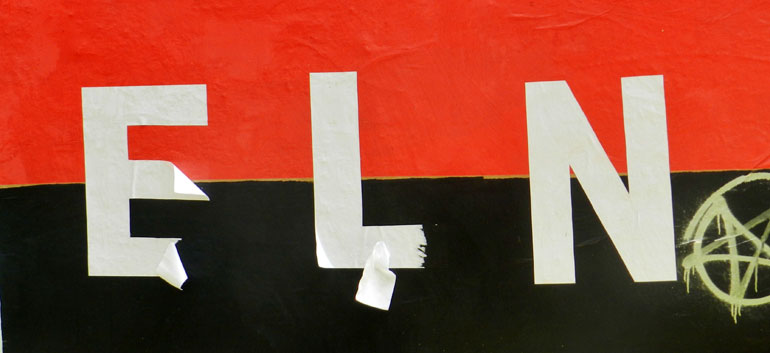
by Robin Llewellyn, Colombia Reports
BOGOTÁ — A week in which Colombia's peace talks were suspended might not seem the most opportune time to advocate initiating peace negotiations with Colombia's second largest guerilla group, the National Liberation Army (ELN). But a new book, launched Nov. 20 at Bogotá's Center of Memory, Peace and Reconciliation, argues for exactly this.
Why Negotiate with the ELN? is a compilation of works by various authors, edited by professor Victor Currea-Lugo of the Pontificia Universidad Javeriana, and was presented with Liberal Party Senator Horacio Serpa Uribe.
Given the FARC's recent capture of two soldiers, its killing of two indigenous guards, and its capture of General Ruben Dario Alzate, what are the prospects for such a negotiation?
YEMEN: STREET PATROLS AND POLARIZATION
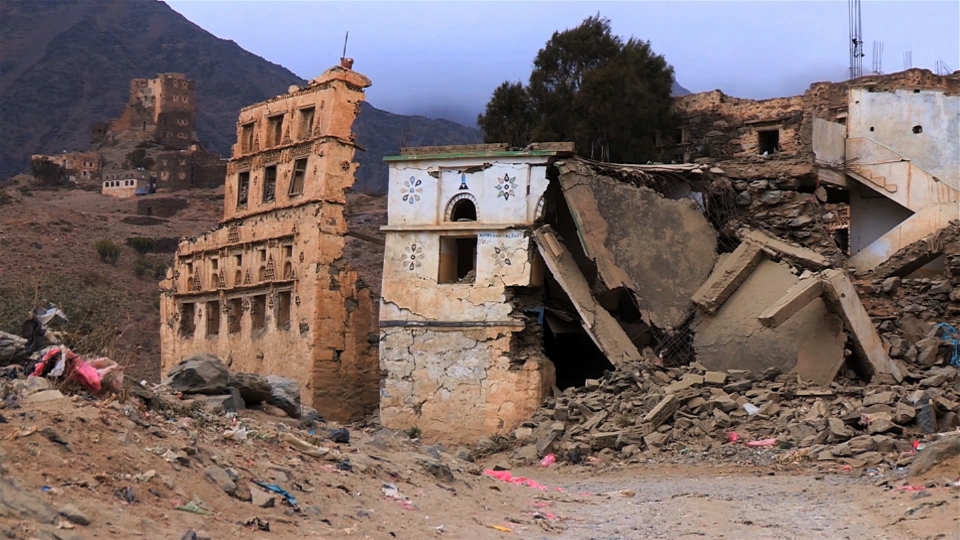
from IRIN
SANAA — Yahia Abu Talib, serious and stoic, is in no doubt about the importance of his role. "We protect homes and mosques," he says, referring to the so-called popular committees of which he is a member. In a mixed neighborhood of Yemen's capital Sana'a, Abu Talib calls himself a "social superviser" for the Houthi group known as Ansar Allah, or "Supporters of God."
In the same area, off Hayal Street, a young man with an AK-47 slung over his shoulder identifies himself as a ninth grader. He is responsible for guarding a government warehouse, attending school in the day and doing shifts through the night. "[I am here] to defend Yemen," he says.
LIBERIANS IN U.S. FACE GROWING EBOLA STIGMA
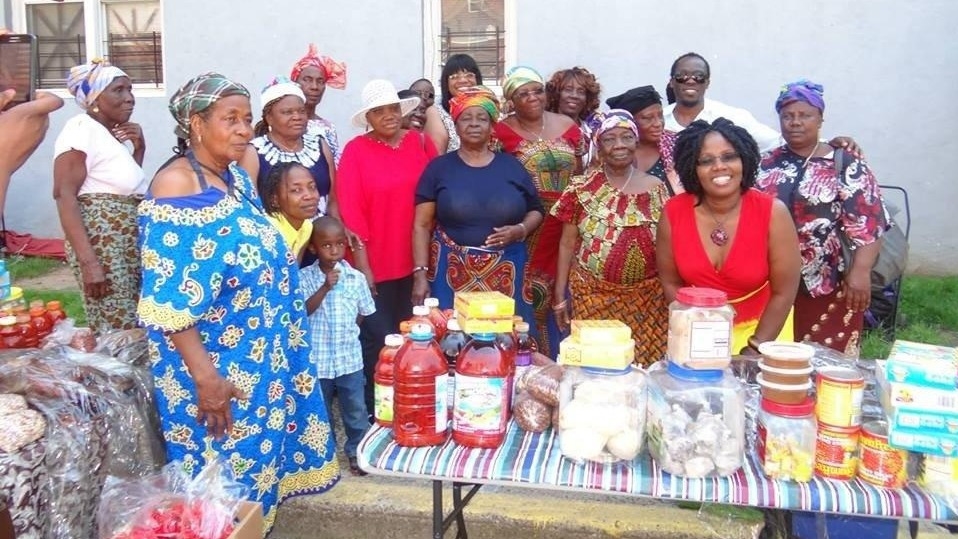
by Philippa Garson, IRIN
NEW YORK — Africans living in the US from the three Ebola-affected countries of Liberia, Guinea and Sierra Leone are under enormous pressure trying to help their families and ravaged communities back home. And they face an additional challenge: stigma.
For the residents of "Little Liberia," one of Liberia's biggest emigrant communities in Staten Island, New York, the path to integration has been strewn with hurdles. Many of the several thousand residents came decades ago as refugees from the civil war in Liberia. Eking out a living, attaining resident status, integrating with at times unfriendly neighbors and, in recent months, helping those families hard hit by Ebola at home, has been an uphill battle.
But when Thomas Eric Duncan, a Liberian, was diagnosed with Ebola in a Dallas hospital in September, "all hell broke loose here," Oretha Bestman-Yates, president of the Staten Island Liberian community, told IRIN.
A THOUSAND SANKARAS COME OF AGE
Burkina Faso's Martyred Leader Inspires a New Generation of Activists
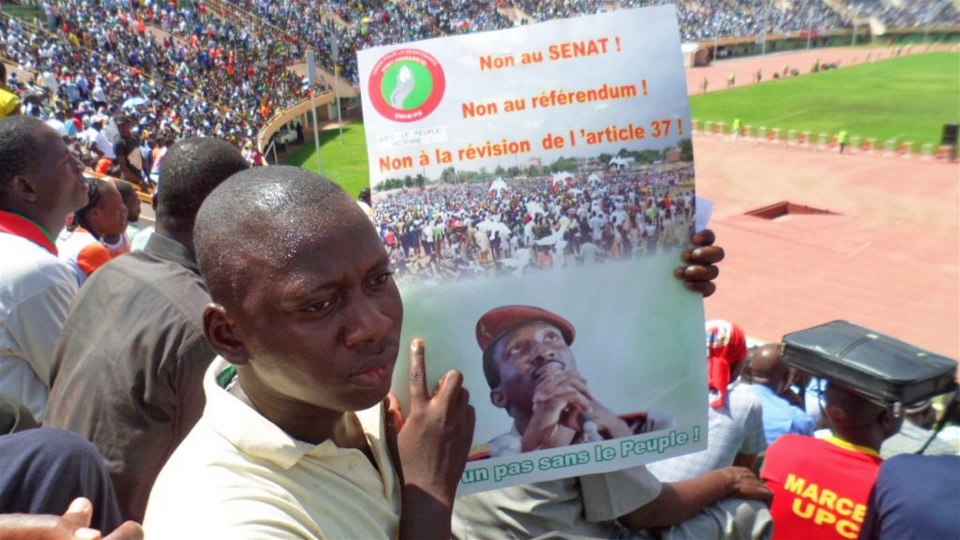
by Brian Peterson, Think Africa Press
Burkina Faso's President Blaise Compaoré announced his resignation Oct. 31, after protesters continued to mobilize against his rule. He had ruled since 1987, when Compaoré overthrew leftist leader Thomas Sankara—and quickly moved to reverse his legacy. In this Aug. 15 piece for Think Africa Press, writer Brian Peterson accurately predicted that "Sankara's ghost may be coming back to return the favor." —World War 4 Report
Thirty years ago, on August 4, 1984, the former French colony of the Upper Volta was re-baptized as "Burkina Faso" amidst a revolutionary process that proved to be one of the most inspiring, yet ultimately tragic, episodes of modern African history.
In 1983, the young Captain Thomas Sankara had come to power in a popularly-supported coup d'état, and—with broad support from leftist political parties, students, women, and peasants—initiated a range of ambitious projects, including the country's name-change, that aimed to make Burkina Faso more self-reliant and free of corruption. Sankara also sought to decentralize and democratize power in order to facilitate more participatory forms of governance, though elections for national offices were never attempted.
By many measures, this visionary project was enjoying a number of promising successes, but on October 15, 1987, Sankara's experiment and life were cut short when a group of fellow soldiers, led by his former close ally Blaise Compaoré and backed by foreign powers, murdered him. Compaoré promptly took the reins of government, effectively ending the revolution.
BOLIVIA'S CONAMAQ INDIGENOUS MOVEMENT
"We will not sell ourselves to any government or political party"
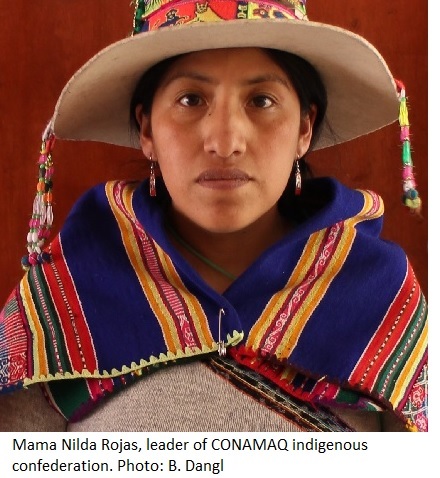
Interview by Pablo Peralta M., Página Siete, La Paz
Translation by Benjamin Dangl, Upside Down World
Translator's note: Bolivia's Conamaq indigenous movement is currently a major grassroots critic of the policies of the Evo Morales government and its Movement Toward Socialism (MAS) party. Because of this critical stance, the government helped to violently oust the Conamaq from their offices in La Paz this past December, and create a parallel, pro-MAS Conamaq. Mama Nilda Rojas is a leader of the dissident, or organic, Conamaq, and is interviewed here by Pablo Peralta M. of Bolivia's Página Siete newspaper. While ex-Conamaq leader Rafael Quispe is seeking to run for president against Morales, the current Conamaq of Nilda Rojas rejects all political parties and alliances with any governments, and remains one of the few critical social movements outside the umbrella of the MAS party, along with a radical base of followers and a progressive vision for the country.
In this interview, Rojas mentions the MAS-supported Mining Law, which gives members of the mining industry the right to use public water for its water-intensive and toxic operation, while disregarding the rights of rural and farming communities to that same water. Furthermore, the law criminalizes protest against mining operations. Conamaq’s struggle is part of a Latin America-wide grassroots push not just against extractivism, but also for respecting the rights of communities in the cross hairs of extractivism to prior consultation, an end to the criminalization of protest against extractive industries, and for a diversification of the economy beyond just the export of raw materials. The Conamaq stands beside many regional movements advocating the development of an economy and politics which respects the environment and indigenous rights while providing support and empowerment for a majority of the population.















Recent Updates
2 days 4 hours ago
3 days 4 hours ago
3 days 4 hours ago
3 days 5 hours ago
5 days 6 hours ago
5 days 6 hours ago
5 days 7 hours ago
6 days 7 hours ago
6 days 8 hours ago
6 days 9 hours ago